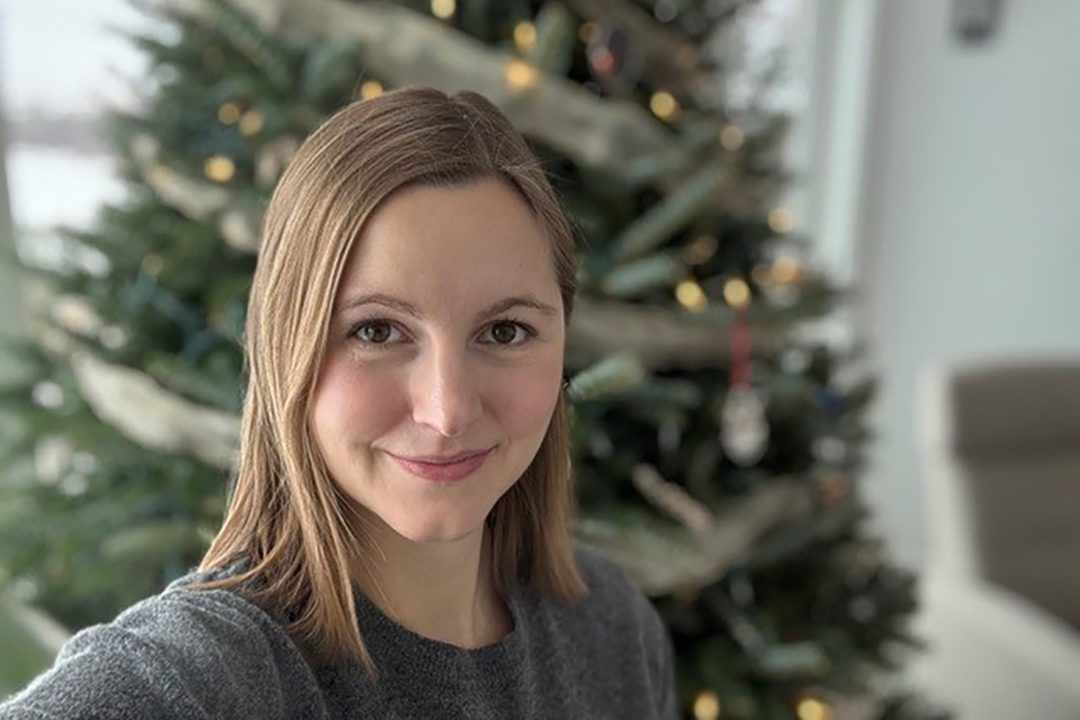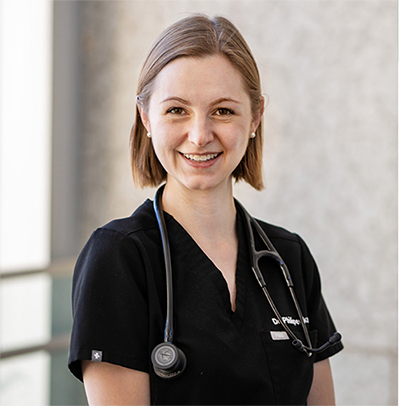
Exercise your right to breathe: Dr. Brianne Philipenko and asthma
Dr. Brianne Philipenko (MD) was midway through her respirology fellowship in Calgary when the COVID-19 pandemic shut down the city.
By RESEARCHERS UNDER THE SCOPE
Listen to all episodes of the Researchers Under the Scope podcast.
Researchers Under the Scope is produced by the Office of the Vice-Dean Research in USask’s College of Medicine.
She started interval workouts at home using Nike’s fitness app — when inspiration struck.

“Coming up with a creative, innovative way to allow people to access an exercise program outside of the typical organized pulmonary rehabilitation in a gym setting was something that I became really interested in,” said Philipenko.
As a respirologist, Philipenko was already frustrated by the lack of ‘mainstay’ guidelines on incorporating exercise into severe asthma treatment.
“I think that’s a big disservice for our patients,” she said. “We’re giving them these fancy medications that improve their asthma, but we’re not going after the low-hanging fruit such as physical activity.”
“It's something cheap, accessible, that everyone can do, and it's something that I think is very much underutilized.”
Even before the pandemic, access to pulmonary rehabilitation programs was severely limited, as most also serve people suffering from Chronic Obstructive Pulmonary Disease (COPD).
And Philipenko’s asthma patients were often leery of exercise, for fear of triggering an attack.
“You don't exercise, so then you get out of shape and that makes you more short of breath when you exercise,” she said. “It becomes a vicious cycle of deconditioning and fear, and it's really hard to break that."
Philipenko teamed up with a physiotherapist and a kinesiologist to develop an at-home rehabilitation program for people with pulmonary hypertension. Patients download an app, then follow the program for eight to 12 weeks, incorporating pacing strategies and breathing exercises to ease their way back into fitness. She’s studying what works — and what doesn’t.
“We're still in the middle of recruitment,” said Philipenko. “The ones who have done it seem to have enjoyed it, and it's been really interesting in that we've had people of very different baseline physical activity levels.
“We have people that are extremely fit exercising every day, to people that never exercise ever, with asthma participating in the study,” she said. “It's promising.”
By 2021, Drs. Erika Penz (MD) and Donald Cockcroft (MD) — colleagues Philipenko met during internal medicine training — helped convince her to return to her hometown, taking on her current role as a respirologist and an assistant professor of respirology, critical care and sleep medicine at the University of Saskatchewan's College of Medicine.
“They have been giants in the space of asthma, and they really inspired me. They brought me back and made it exciting to participate in the research scene here in Saskatoon,” Philipenko said.
She’s working with the Asthma Research Lab team, where her patients can now take part in bronchoprovocation studies and clinical trials for new asthma medications.
“As much as I love my clinical practice, it's really nice to have something else going on that shakes things up. And for me, that was research,” said Philipenko.
Through her study, she hopes to see a shift in the way exercise is perceived within the guidelines for respirologists, pushing for recognition of its critical role alongside pharmaceuticals.
“That's the wonderful thing about asthma, is that if it's controlled, you should be completely asymptomatic. It's not a progressive disease. And we have some medications that can achieve that for people now. So it's a pretty exciting time to be working in this field.”
